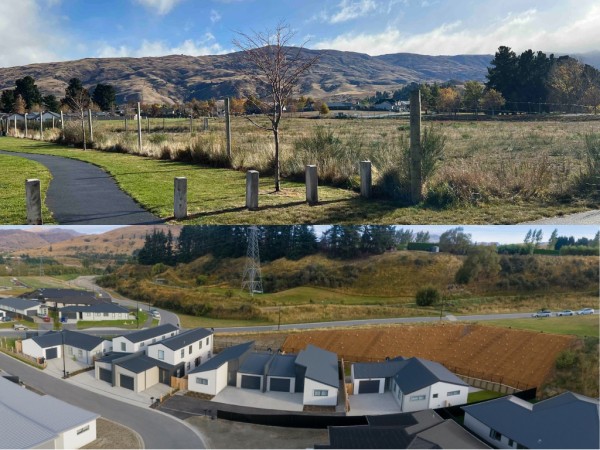
Council's affordable homes for locals only: CODC mayor
The latest stage of Cromwell’s Gair Avenue subdivision may include low-rise apartments and semi-detached and terraced homes reserved for purchase by local residents only.
The Central Otago District Council yesterday adopted a policy aimed at providing different housing types on council-led developments to meet a need for affordable housing in the district.
And, councillors have asked council staff to come up with some ideas about how to control who gets to buy the resulting cheaper housing stock.
Mayor Tim Cadogan spoke at yesterday’s full council meeting strongly in favour of the council continuing to do everything in its power to address housing shortages in Central Otago communities.
Younger people are being forced out of the district because they can’t find somewhere to live, while housing pressures are exacerbating a shortage of staff for local businesses, he says.
At the meeting councillors signed off on a policy to encourage council-led developments to include more affordable housing options than the market typically provides.
That may include low-rise apartments or semi-detached or terraced housing, the policy says.
The policy will not apply to privately-owned subdivisions, but the latest stage of the Gair Avenue development in Cromwell will fall under its scope.

CODC wants to offer different types of homes to buyers in the council-led Gair Avenue subdivision (pictured above top), and they're considering reserving the best-value options for residents who already call the district home. Semi-detached dwellings (pictured above bottom), as well as low-rise apartments and terraced housing, are part of the housing stock the Queenstown Lakes Community Housing Trust offers as affordable housing options in the Queenstown Lakes District.
However at the meeting, Mr Cadogan pushed for councillors to take a further step to help ensure it is locals that benefit from any good value housing that results from the council’s policy.
He wants to see measures in place to prevent cheaper homes being snaffled up by baby boomers from Auckland, or part-time residents keen for a Central Otago holiday home, he says.
"It might be to as simple an extent as just saying 'If you want to bid on this, you've got to have lived here for five years or two years or something'...Otherwise it’s a waste of time."
Cromwell councillor Nigel McKinley voiced concerns the ongoing discussion on affordable housing was “relitigating” what had been put to bed by councillors last month when they voted not to endorse the Central Otago Affordable Housing Trust’s secure homes model.
He stressed now was not the time to “press pause” on the Gair Avenue development, saying it shouldn’t be left to “stagnant”.
Council staff will report back to councillors on possible options for a preferential purchase policy, and Mr Cadogan says if councillors agree to it there’s no reason something can’t be in place by the time Gair Avenue comes to market.
That process is a separate one and will not stall the subdivision timeline, he says.
Meanwhile Cromwell councillor Cheryl Laws quizzed council staff at the meeting on the option of following Queenstown Lakes District Council’s lead and investigating inclusionary zoning as a way for the council to deliver affordable housing.
“If it works in Queenstown, how come we can’t get it to work here?”
Council staff responded saying the QLDC had just started taking the first steps on a path towards inclusionary zoning, they’re the first local authority in the country to attempt it, and the concept will be challenged.
At a council meeting this month the QLDC voted to include in its Proposed District Plan provisions that will require a contribution of either land or money towards affordable housing when people develop a subdivision.
Up until now, the council has had a negotiated system with developers rather than a blanket inclusionary zoning provision.






























